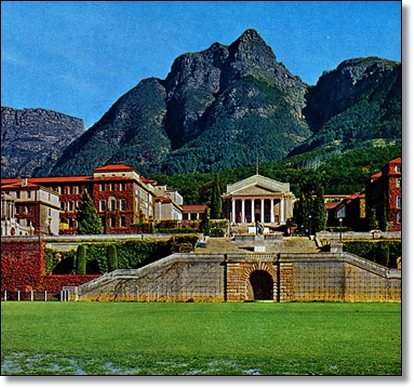Competitive Universities: Key to Africa's Growth

 |
| Cape Town University, South Africa |
Despite being one of the most gifted continent in natural resources, its average GDP per capita (nominal) generated by the World Bank for the period 1990-2010 was a paltry1, 560 US$ compared to a world average of 16,837 US$ for the period. Its power consumption is still the smallest at 3.1% of the world power consumption. The Times Higher Education World University Rankings 2012-2013 also show that among the 400 best universities in the world, only 4 are African (all South African), 131 are North American, 3 are South American, 57 are Asian, 180 are European and 25 are Oceania. The whole of Africa north of South Africa doesn’t have any among the 400 world top universities. It means that most African countries are not delivering the global competence of leadership, technologies and expertise required to maximize Africa’s positive participation in the global knowledge economy.
It is important that the continent taps into regional cooperation to raise the seed capital for setting up world-class universities on the African continent, collectively owned and operated by the African countries. These would attract the best of world-class trainers and/or researchers and enroll the best of talents from all African countries and the world over to achieve continental and global competitiveness.
Deterioration of the competitiveness of many African universities is also attributable to the retiring of trainers and researchers who did their undergraduate studies at world-class universities. Their places are taken by fresh counterparts hailing from the local universities which are not world-class. The preference of cheap but sub-standard trainers and researchers over expensive but world-class human resource should also be reversed. African institutions of higher learning must think long term and stop compromising competitiveness.
The continual expansion of existing universities and creation of new ones at the expense of the provision of quality education must also be reversed. Failure to do this is a prescription to generating graduates who cannot secure jobs related to their studies in the global market because they are not qualified enough.
Creating mechanisms to identify the best of young African talents in secondary schools and enabling them to do their undergraduate studies at world-class universities by assisting them to secure necessary admissions and scholarships will spur competitive learners. Capable parents should also be encouraged to sponsor talented African pupils to enable them do their undergraduate studies at leading universities in the world. African Governments and universities should also collaborate with major private sectors in Africa to establish ways they could work together to evolve world-class universities.
By Dr Antipas Massawe
Mining Engineer, Dar es Salaam, Tanzania.
